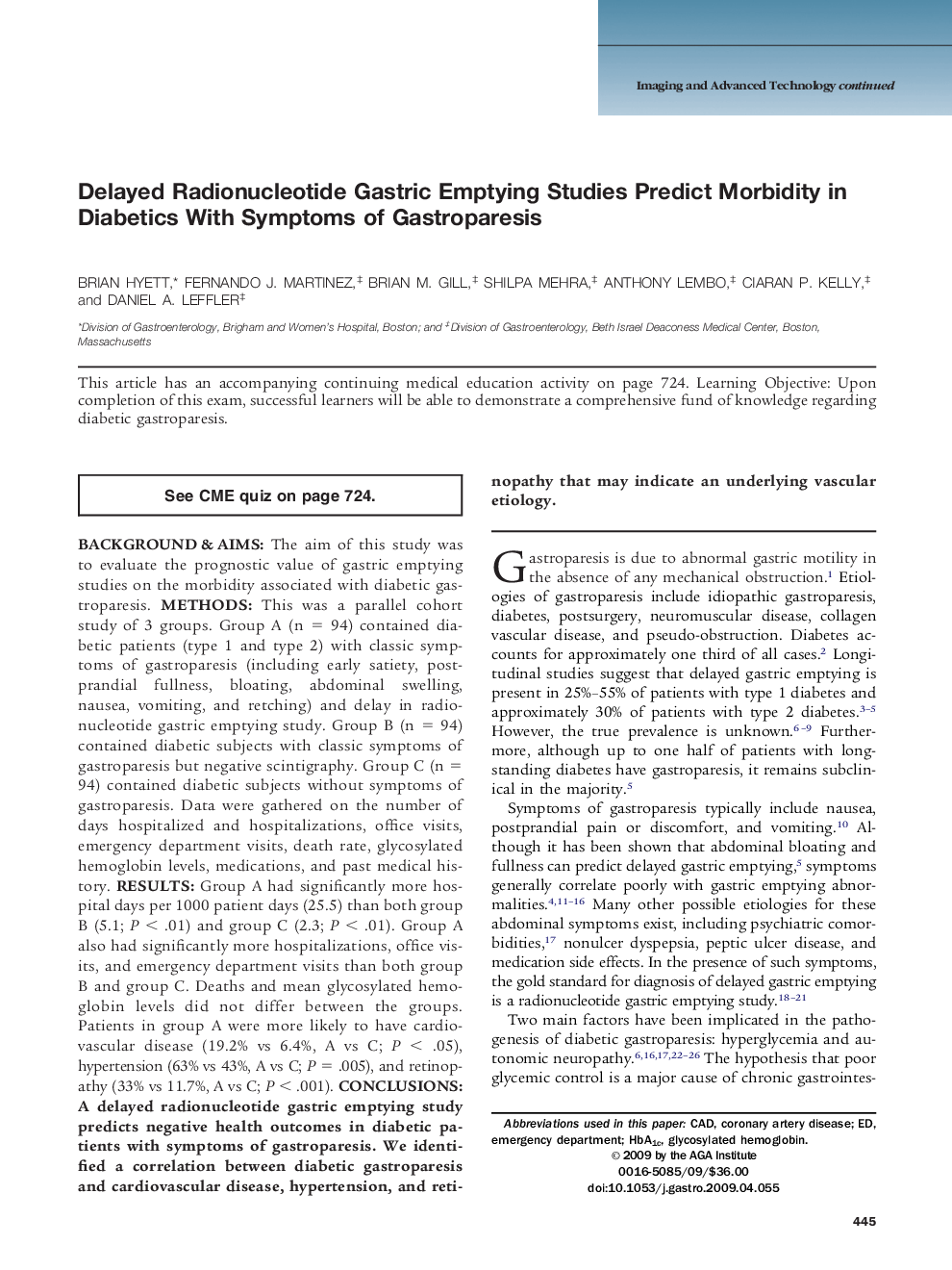| Article ID | Journal | Published Year | Pages | File Type |
|---|---|---|---|---|
| 3295271 | Gastroenterology | 2009 | 8 Pages |
Background & AimsThe aim of this study was to evaluate the prognostic value of gastric emptying studies on the morbidity associated with diabetic gastroparesis.MethodsThis was a parallel cohort study of 3 groups. Group A (n = 94) contained diabetic patients (type 1 and type 2) with classic symptoms of gastroparesis (including early satiety, postprandial fullness, bloating, abdominal swelling, nausea, vomiting, and retching) and delay in radionucleotide gastric emptying study. Group B (n = 94) contained diabetic subjects with classic symptoms of gastroparesis but negative scintigraphy. Group C (n = 94) contained diabetic subjects without symptoms of gastroparesis. Data were gathered on the number of days hospitalized and hospitalizations, office visits, emergency department visits, death rate, glycosylated hemoglobin levels, medications, and past medical history.ResultsGroup A had significantly more hospital days per 1000 patient days (25.5) than both group B (5.1; P < .01) and group C (2.3; P < .01). Group A also had significantly more hospitalizations, office visits, and emergency department visits than both group B and group C. Deaths and mean glycosylated hemoglobin levels did not differ between the groups. Patients in group A were more likely to have cardiovascular disease (19.2% vs 6.4%, A vs C; P < .05), hypertension (63% vs 43%, A vs C; P = .005), and retinopathy (33% vs 11.7%, A vs C; P < .001).ConclusionsA delayed radionucleotide gastric emptying study predicts negative health outcomes in diabetic patients with symptoms of gastroparesis. We identified a correlation between diabetic gastroparesis and cardiovascular disease, hypertension, and retinopathy that may indicate an underlying vascular etiology.
